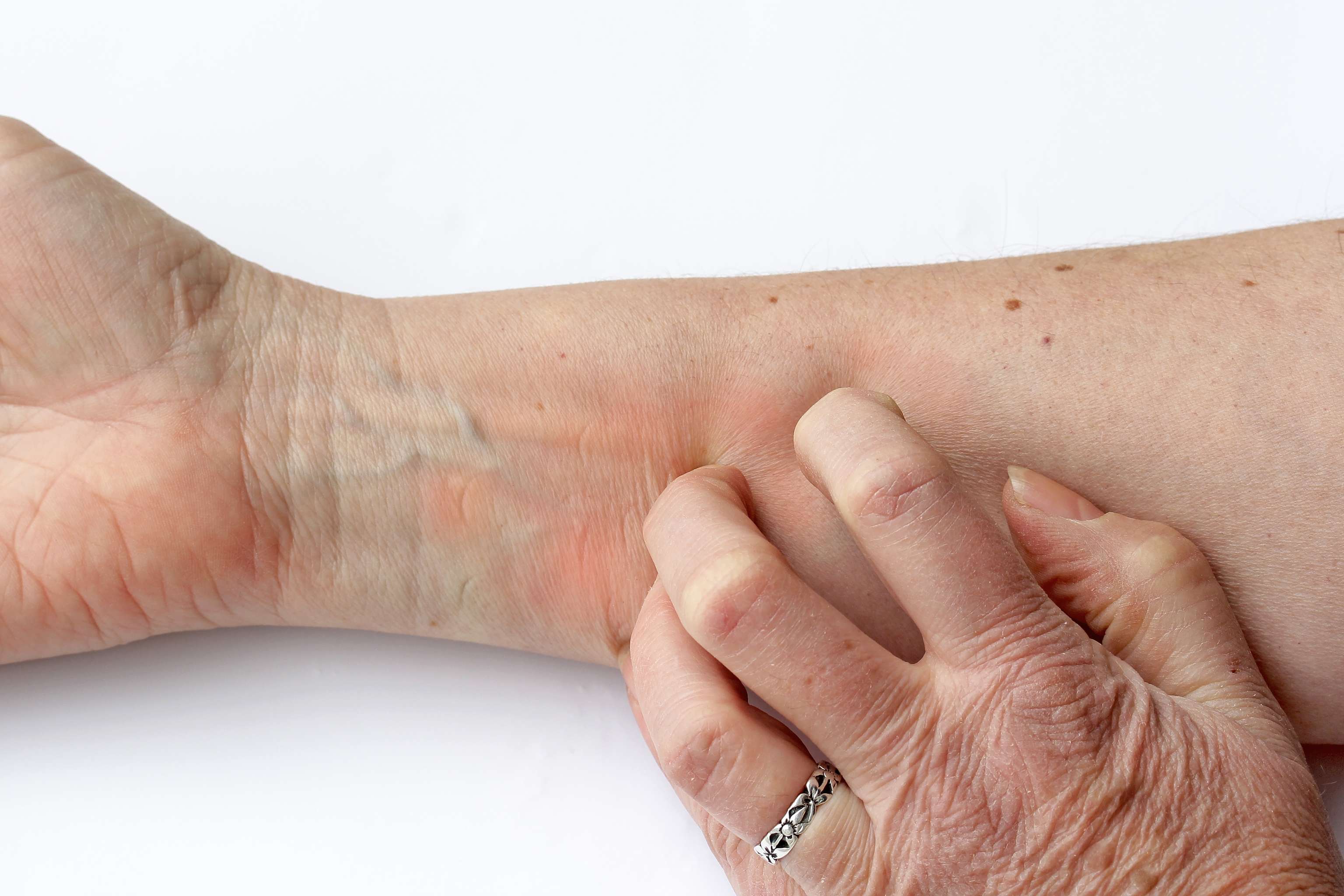Increased risk of autoimmune disease due to neurodermatitis

Neurodermatitis defined:
Neurodermatitis, also called atopic dermatitis, is a chronic or chronic-recurrent (i.e., relapsing) hereditary skin disease. Inflammatory dermatitis often occurs in early childhood. Severe itching, dry skin and/or eczema (i.e. inflammatory skin changes) are the most common symptoms. While the exact cause is still unknown, several factors may be responsible for the development of the disease - including a disturbed skin barrier or heredity. The flare-ups are usually triggered by certain factors (i.e. triggers) such as specific foods or weather conditions. The symptoms can vary greatly - while in some patients the skin disease takes a mild course, others may suffer from severe symptoms.
Atopic dermatitis can be treated with various drugs such as cortisone and tacrolimus, or in severe forms with ciclosporin. The study, published in October 2020, investigated an association between atopic dermatitis and an autoimmune disease in the Swedish population.
What is an autoimmune disease?
In an autoimmune disease, the body's own defense mechanisms attack its own tissues through a "wrong" differentiation of the body's cells. This impaired tolerance of the immune system can either be limited to a specific organ or affect several organ systems. Here, too, the causes are still unclear, although infections or pregnancy could have an influence on the development. If the disease is diagnosed by the detection of autoantibodies (i.e. antibodies that bind an endogenous antigen), so-called immunosuppressants can be used. Such substances reduce the functions of the immune system.
The study, published in the British Journal of Dermatology, identified autoimmune diseases in patients by using ICD codes (i.e. International Classification of Diseases). International Classification of Diseases is a globally recognized classification system for medical diagnoses published by the WHO.
Swedish study design:
Swedish national health registers were used for this case-control study, with the population aged 15 years and older from 1968 to 2016 as the reference. Cases were matched by sex and age. In this study, 104,832 patients diagnosed with atopic dermatitis either in a clinic or by a specialist were each matched and studied with 10 randomly selected people of the same age and sex.
Results:
The results showed that the patients with atopic dermatitis were, on average, twice as likely to have autoimmune disease. The odds ratio, i.e. the strength of the association between these two characteristics, was statistically significant with a calculated value of 1.97. The strongest associations were recorded in patients with multiple autoimmune diseases of the skin. Neurodermatitis patients were up to ten times more likely to develop dermatitis herpetiformis (i.e. blistering autoimmune dermatosis) and showed a fivefold increase in risk of alopecia areata (i.e. hair loss) and chronic urticaria (i.e. hives).
In addition, patients with atopic dermatitis were more likely to develop gastrointestinal disorders with autoimmune diseases such as celiac disease (i.e. small bowel disease caused by gluten intolerance), Crohn's disease (i.e. chronic inflammatory bowel disease), or ulcerative colitis (i.e. bowel disease of the rectum). Connective tissue diseases such as rheumatoid arthritis (i.e. disease of the joints) were also noted more frequently in those studied.
Overall, these associations were slightly more pronounced in men than in women. However, this sex-specific association was significant only for joint disease and small bowel disease.
Conclusion:
This population-based study showed a significant association between atopic dermatitis and increased risk of autoimmune disease. Compared to only one autoimmune disease, patients with multiple autoimmune diseases show a stronger association with atopic dermatitis. Thus, this study offers significant new insights related to the skin disease atopic dermatitis.
Active ingredients:
Sources
- L.U. Ivert, C.‐F. Wahlgren, B. Lindelöf, H. Dal, M. Bradley, E.K. Johansson. Association between atopic dermatitis and autoimmune diseases: a population‐based case–control study. British Journal of Dermatology. 2020 Oct.
- Neurodermitis erhöht Risiko auf Autoimmunerkrankungen (Ärzteblatt)
- Neurodermitis (Netdoktor)
- Autoimmunerkrankungen (Netdoktor)
- Neurodermitis (Öffentliches Gesundheitsportal Österreich)

Danilo Glisic
Last updated on 01.02.2021
Your personal medication assistant
Browse our extensive database of medications from A-Z, including effects, side effects, and dosage.
All active ingredients with their effects, applications, and side effects, as well as the medications they are contained in.
Symptoms, causes, and treatments for common diseases and injuries.
The presented content does not replace the original package insert of the medication, especially regarding the dosage and effects of individual products. We cannot assume liability for the accuracy of the data, as the data has been partially converted automatically. Always consult a doctor for diagnoses and other health-related questions.
© medikamio